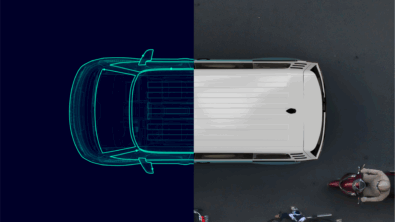Accelerating the future of the EU Automotive Industry: The power of Strategic Partnerships & Digital Twin

The European Union’s automotive industry is undergoing a significant transformation, driven by rapid advances in technology and a shift towards more agile, continuous development methodologies. The transition from a traditional “deploy and forget” approach to a DevOps methodology is crucial for staying competitive in a global market increasingly dominated by AI and digital innovations. Two key EU players, Dream Chip and Siemens’ Cre8Ventures, are corner stoning a platform that aligns with the EU Chips Act’s goals by helping European automotive companies navigate these changes.
The challenges
The traditional automotive development cycle has long been characterized by a “deploy and forget” approach, where vehicles are developed, deployed and largely remain unchanged until the next model iteration. This method is becoming increasingly untenable as consumer demand grows for smart, connected and continuously upgradable vehicles. The shift to a DevOps methodology – emphasizing continuous integration, continuous delivery, and ongoing collaboration between development and operations teams – is essential for meeting these expectations.
The challenges include:
- Complexity of Integration: Incorporating AI and other advanced technologies into vehicles requires seamless integration of hardware and software.
- Need for Continuous Updates: Modern vehicles need frequent updates to improve functionality, security, and user experience.
- Regulatory Compliance: Ensuring that all updates and new technologies comply with stringent automotive safety and emissions standards.
Dream Chip AI capabilities and Siemens’ Cre8Ventures Automotive Digital Twin Marketplace
Advanced AI accelerator SoCs

Dream Chip specializes in creating advanced System-on-Chip (SoC) designs and the integration of virtual models of their SoCs in the Siemens Digital Twin platform, with a particular focus on AI accelerators for automotive applications. Their latest innovation, a 22nm SoC incorporating a 10 TOPS AI accelerator, Vision DSPs and Arm Cortex A65AE CPUs, is designed to enhance the performance and reliability of automotive vision processors. These AI accelerator chips enable real-time data processing and decision-making, which are crucial for autonomous driving and other advanced automotive functions
Benefits for DevOps transition
- Digital twin and virtual validation support: Virtual models allow to validate AI workloads before deploying them to the vehicle
- Enhanced security: Security processors (HSM) ensure that any new updates do not compromise vehicle security and consequently safety, maintaining compliance with automotive regulations.
Siemens’ Cre8Ventures and PAVE360 Automotive Digital Twin
Full-system virtual validation
Siemens’ Cre8Ventures, Automotive Digital Twin (PAVE360) provides a full system digital twin environment for simulating and validating automotive systems. This allows automotive companies to test their hardware and software in a virtual setting before deployment, ensuring that all components work seamlessly together.
Benefits for DevOps transition
- Rapid prototyping: The digital twin environment allows for rapid prototyping and testing, significantly reducing the time required for development cycles.
- Cost efficiency: Virtual testing identifies potential issues early, reducing the need for costly physical prototypes and iterations.
- Regulatory compliance: Simulations ensure that all updates and new technologies comply with regulatory standards before physical implementation.
Through collaborative campaigns which include startups, their customers and the customers, customer the Automotive Digital Twin Marketplace offers pre-silicon startups the potential to build their pre-money valuations and access to customers, transparency and first mover opportunities for OEMs, de-risked capital efficient investment opportunities for the EU Chips Act fund and venture capitalists and new opportunities to grow knowledge based economies the semiconductor knowledge based economies.
Supporting the EU Chips Act
The EU Chips Act aims to strengthen Europe’s semiconductor industry, ensuring technological sovereignty and resilience in the global market. The collaboration between Dream Chip and Siemens Cre8Ventures aligns perfectly with this initiative by providing the technological foundation and development methodologies needed for the future of automotive innovation.
Key contributions:
- Technological leadership: By advancing AI and digital twin technologies, this partnership positions Europe at the forefront of automotive innovation.
- Economic growth: Successful integration of these technologies can spur job creation and economic growth in high-tech sectors.
- Strategic autonomy: Enhancing Europe’s semiconductor capabilities reduces dependency on external sources, supporting the EU Chips Act’s goal of technological sovereignty.
Conclusion
The partnership between Dream Chip and Siemens’ Cre8Ventures is a pivotal development for the EU automotive industry. By combining advanced AI accelerators with comprehensive digital twin simulations, they provide the tools necessary for a successful transition from a “deploy and forget” approach to a DevOps methodology. This transformation not only aligns with the strategic objectives of the EU Chips Act but also ensures that European automotive companies remain competitive in an increasingly digital and interconnected world. As Europe strives to lead the automotive revolution, these collaborations will be crucial in driving progress and innovation.
For more information about Dream Chip and Siemens’ Cre8Ventures, visit our website or contact Carson Bradbury, Director – EU Chips Act & Co-founder Cre8Ventures (carson.bradbury@siemens.com)



